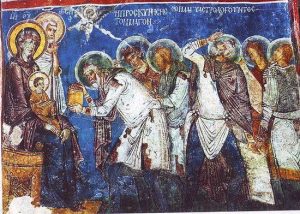 Meditation by Very Rev. Dr. David Petras
Meditation by Very Rev. Dr. David Petras
Christmas is a feast of unity. It is, first and foremost, unity between God and humanity. The Word of God takes the human nature so that the image and likeness of God in us might be restored. Walls are broken, and the first sticheron, the first words, of Christmas are, “Come, let us rejoice in the Lord; let us proclaim the present mystery by which the partition has been broken and the flaming sword withheld.” What God does vertically, he expects us to do horizontally, and so at his birth the poor (the shepherds) and the rich (the Magi) are called to adore. His own people (the shepherds, the Jews) and the outsiders (the Magi, the Gentiles) are called together. Just as God becomes one with us, we become one with God, and with each other, and the last words of Jesus to his disciples before his arrest are a prayer for the people, “the glory which you gave me I have given them, that they may be one just as we are one: I in them, and you in me; that they may be made perfect in one, and that the world may know that you have sent me, and have loved them as you have loved me. (John 17:22-23)” The result of this will be peace on earth, as proclaimed by the angels in heaven and foretold by the prophet Isaiah, “Then the wolf shall be a guest of the lamb, and the leopard shall lie down with the young goat; the calf and the young lion shall browse together, with a little child to guide them. The cow and the bear shall graze, together their young shall lie down; the lion shall eat hay like the ox. The baby shall play by the viper’s den, and the child lay his hand on the adder’s lair. They shall not harm or destroy on all my holy mountain; for the earth shall be filled with knowledge of the Lord, as water covers the sea. (Isaiah 11:6-9, the Fourth Reading of the Vespers of Christmas)” This unity is needed in a world shaken by conflict, by hatred of the other, by racism. It is sad that Christians cannot be united among themselves.
Cardinal Koch, on his visit to the Ecumenical Patriarchate on November 30, 2015, said, “The world today has great need of reconciliation, particularly in light of so much blood which has been shed in recent terrorist attacks. May we accompany the victims with our prayers, and renew our commitment to lasting peace by promoting dialogue between religious traditions, for “indifference and mutual ignorance can only lead to mistrust and unfortunately even conflict” (Common Declaration, Jerusalem 2014).”
Truly, the greatest Christmas gift that could be given is unity among all, and especially among Christians as a witness to the world.
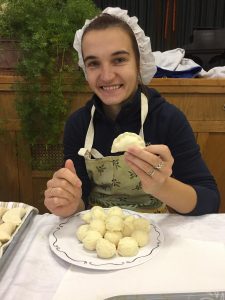 The Schedule for Pierogi Saturday for 2017:
The Schedule for Pierogi Saturday for 2017: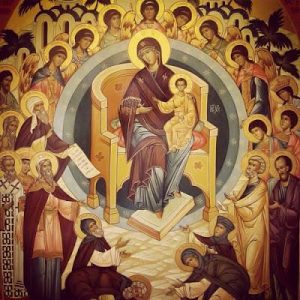 Today, the day after the Christmas feast the Byzantine Church honors Mary, the Mother of God (Theotokos) with a special feast day of remembrance.
Today, the day after the Christmas feast the Byzantine Church honors Mary, the Mother of God (Theotokos) with a special feast day of remembrance.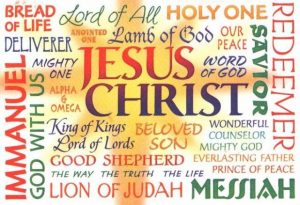 Today we celebrate the Incarnation of the Word, the birth of our divine Lord, Savior and Good Shepherd, Jesus the Christ. The Holy Name Jesus (Yashua, or some variation) in Hebrew means “God saves”: his name truly reflects his profound identity!
Today we celebrate the Incarnation of the Word, the birth of our divine Lord, Savior and Good Shepherd, Jesus the Christ. The Holy Name Jesus (Yashua, or some variation) in Hebrew means “God saves”: his name truly reflects his profound identity! Meditation by Very Rev. Dr. David Petras
Meditation by Very Rev. Dr. David Petras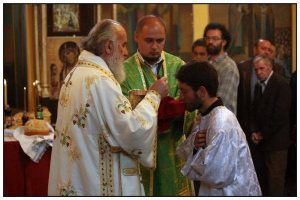 Meditation by Very Rev. Dr. David Petras
Meditation by Very Rev. Dr. David Petras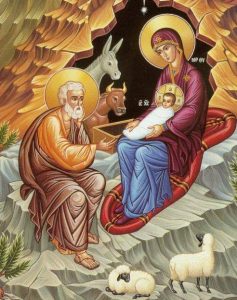 Divine Liturgy on Sunday, December 25th, Christmas Day
Divine Liturgy on Sunday, December 25th, Christmas Day 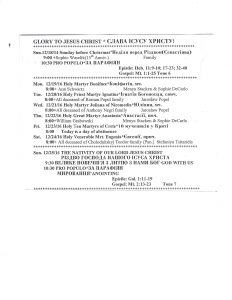
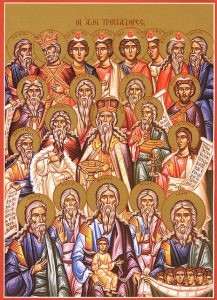 Meditation by the Very Rev. Dr. David Petras
Meditation by the Very Rev. Dr. David Petras